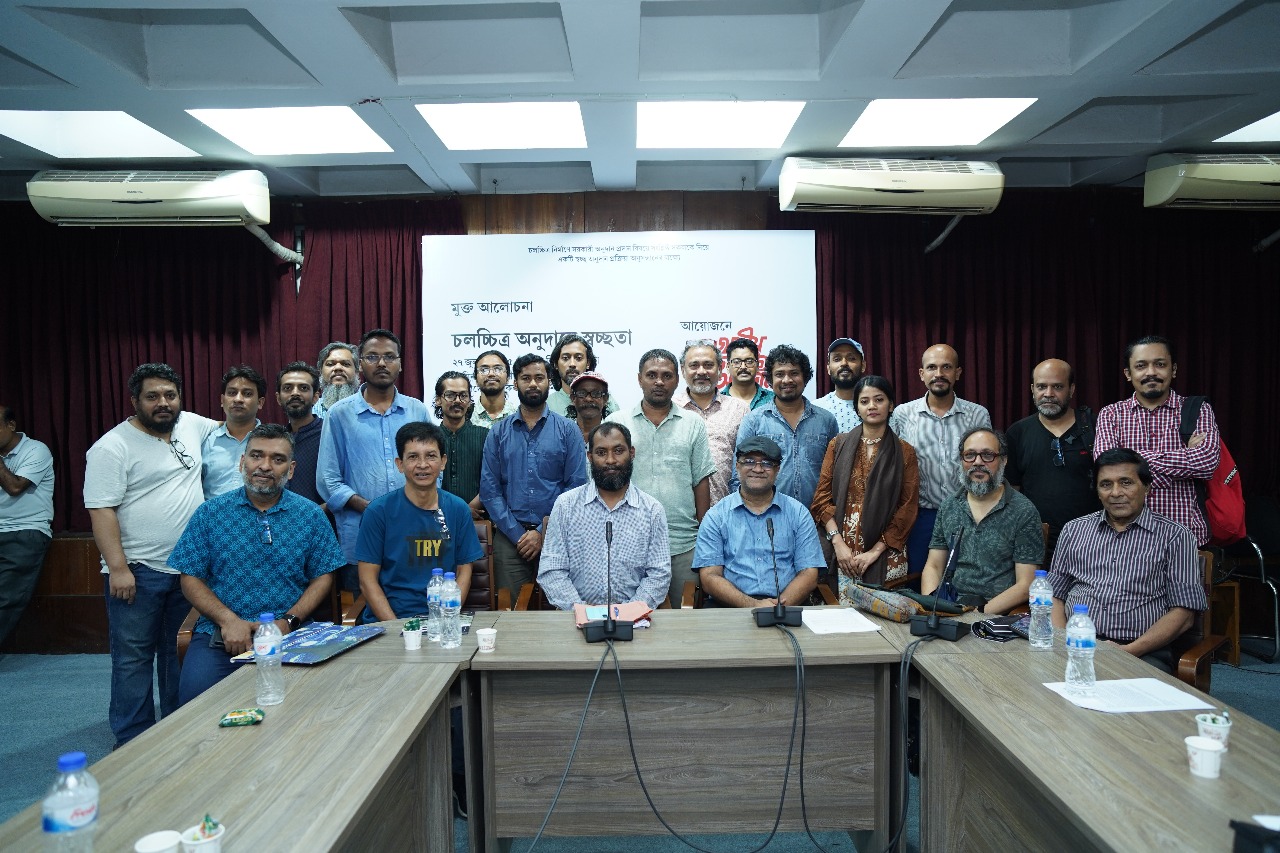The National Film Movement hosted an open discussion titled ‘Transparency in Film Grants’ at the National Film Institute on Sunday in response to criticism from filmmakers and film organisations of government allocation of substantial funds each year for feature-length and short films.
The event was chaired by Advocate Shafiqur Rahman, with Mohammad Nurullah, a key organiser of the movement, presenting the main paper. Nurullah proposed seven key measures aimed at ensuring transparency and fairness in the grants process.
Among the proposals was the recommendation that the names of applicants and detailed summaries of their stories be published online. Nurullah also suggested introducing a tracking system so applicants can follow the status of their submissions.
He further proposed that applications be evaluated anonymously by representatives from various film organisations, with the evaluation process and its results streamed live online. To encourage broader participation, he proposed the idea of developing an app to collect feedback from the public.
The paper called for the creation of clear guidelines for jury members to prevent the imposition of personal preferences during evaluations to ensure impartiality. Another significant issue raised was the lack of clarity regarding who receives the grants, despite clear guidelines on the contents of applications.
Lastly, he emphasised the need for careful evaluation of jury members’ financial and ethical backgrounds and the importance of allowing them to work independently.
Nurullah criticised several aspects of this year’s grant process, notably questioning how pitching 95 films could be conducted fairly within just 12 hours. He raised further concerns over conflicts of interest, including allegations of committee members awarding grants to themselves, the lack of transparency in the selection process, favouritism in allocating funds and the resignation of grant committee members.
Prominent voices from the film industry also took part in the discussion. Participants included film researcher Bidhan Ribeiro, grant committee members Akram Khan and Parthib Rashed, filmmaker N Rashed Chowdhury, and producer Mohammad Qayyum.
Attending the conference were Bangladesh Chalachitra Sangbadik Samity (BACHSAS) President Kamrul Ahsan Hasan Darpan and Rubel Yunus, representing the Bangladesh Film Exhibitors Association.
Representatives from several other organisations, including the Bangladesh Federation of Film Societies, TEZAB, Film Reform Roadmap 24, Bangladesh Documentary Board, Biplobi Workers Party and Nagorik Oikya, also joined the session.
Filmmaker N Rashed Chowdhury pointed out that although the grant itself can be helpful, the lack of continued communication with filmmakers creates difficulties after funding is received. He emphasised the need for a more transparent, inclusive process, free from political interference.
Producer Mohammad Qayyum argued that requiring a full script for grant applications is unnecessary. He noted that in many other countries, grants are awarded based on a filmmaker’s previous work, along with a logline, synopsis or treatment, not a completed script.
Sajedul, representing Film Reform Roadmap 24, mentioned that although current policies allow for aggrieved applicants to file appeals, no one has yet challenged the government using that provision.
Akram Khan highlighted the need to increase both the number of grants and the overall allocation. He also pointed out that documentaries are often neglected in Bangladesh’s grant structure and called for equal consideration of documentaries alongside fiction films.
In his concluding remarks, Mohammad Nurullah emphasised the importance of unity within the film community, stating that if filmmakers could collectively agree on a transparent process, it would make it easier for the government to implement necessary reforms.
Advocate Shafiqur Rahman closed the discussion by underlining the moral responsibility of filmmakers. “The role of film in shaping the nation’s conscience is profound,” he said. “Our filmmakers must lead with moral clarity.”


